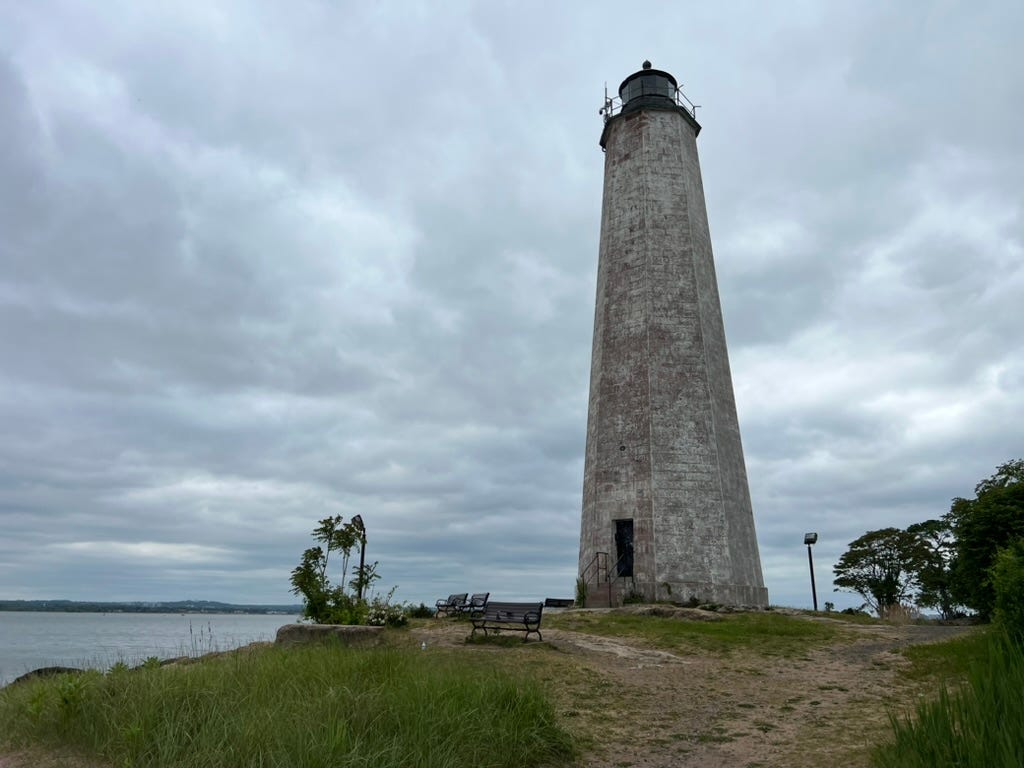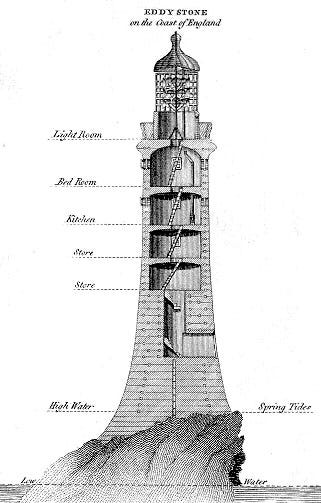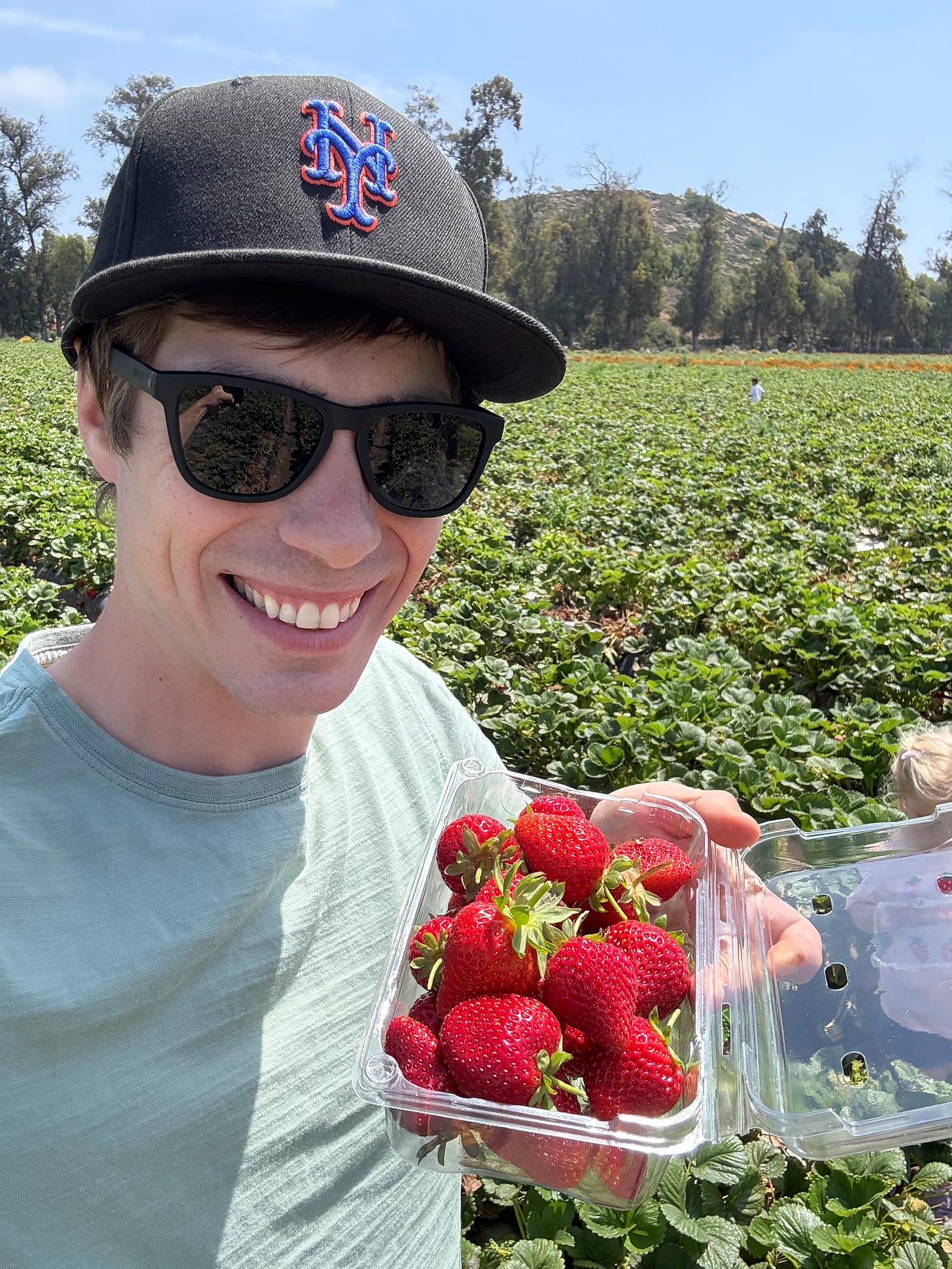Thank you for being here. As always, these essays are free and publicly available without a paywall. If my writing is valuable to you, please share it with a friend or support my writing with a paid subscription.

There are many great things about being a dad. One of them is having an excuse to read children’s books. Over the past number of years, I’ve started to build up a repository of children’s books that resonate with me not just for the stories they tell, but because of the bigger narratives that they represent. Today’s post is the first in what I plan to be an intermittent series of posts where I share a children’s book that’s spoken to me, read the book to you, and then share some brief reflections on how I see the messages in the books applying to my context.
First up: Hello Lighthouse by Sophie Blackall. Sit back, relax, and enjoy.
What a new perspective will do
In the author's notes at the end of Hello Lighthouse, Blackall writes about the experience that inspired her to write the book. She was always fascinated with lighthouses as structures seen from the perspective of the ship. It wasn’t until she encountered a piece of art that showed a cutaway drawing of the interior that she considered what it might be like to live inside the lighthouse.

Blackall's experience is a good one for us to remember as we see the world around us. We always see the things around us from a particular perspective. But there is often much more than meets the eye, especially if we put ourselves in someone else's shoes. For the ship captain, the lighthouse is an invaluable tool to help avoid catastrophe. From the inside, the lighthouse is an expression of sacrifice and long-suffering care, distant from the creature comforts of land and community.
Books invite us to see differently
As I’ve read Hello Lighthouse over and over to my kids, I've had a similar shift in perspective. What that drawing did for Blackall, her book has done for me.
On the surface, this story is one about the day-to-day life of the lighthouse keeper. But it also highlights a deeper narrative about the nature of technological development and transformation. It is a reminder about the complexity of invention and how it impacts people.
The core technological development of electric lighting isn't a focus of the story, but it's the central element on which the plot turns. The keeper is tending the lighthouse as usual until he receives word from the Coast Guard that his job is no more. In their original incarnation, lighthouses required a keeper. You need someone to tend the oil lamp, to keep the windows clean from soot and grime, and to ensure that the light never goes out. The technology was far from autonomous.
I can imagine that on most days, this job wasn't quite as romantic as the beautiful images in Ms. Blackall's book might make it appear. She makes note of this in her commentary, where she shares that her research into the lives of lighthouse keepers revealed all kinds of challenges and struggles. All the sorts of things you might expect—loneliness, boredom, and conflict between the people living together in such small quarters.
The technological advance of electric lights helps to eliminate the toil that accompanies the job of tending the lighthouse. Human labor is no longer required to clean the windows and tend the oil lamp. No longer is there a need to send supplies to feed and care for the human stranded offshore.
And yet, there is never a benefit without a cost. To be sure, the cost may be worth paying. It may be smaller than the corresponding benefit, but it is a cost nonetheless—and one that we often fail to consider at all.
The current technological innovation sweeping across our land is not electric lights, but artificial intelligence. Its impact will be much greater than the transition from oil lamps to electric lights in lighthouses. The people it touches will likewise find themselves required to find a new vocation, just like our lighthouse keeper.
Most will adapt. But they will also likely look like the lighthouse keeper does at the end of the story. Standing and remembering the life they had before the technological disruption.
In the story, you may resonate most with the lighthouse keeper, or perhaps with his wife or his daughter. But I would challenge us to consider where we may be playing the role of the Coast Guard. An impersonal, nameless authority that is developing and integrating new technology that will impact the lives of the people around us and under our care.
May we be mindful of the way that our decisions, justified by calculations of enhanced productivity and improved efficiency, have real human and relational costs. Even while that tradeoff may be a net positive one, it will nonetheless rarely be strictly positive. These decisions always have a real cost to the individuals who are impacted by them.
In the years to come, many lighthouse keepers may find themselves out of a job. Hello Lighthouse offers us some wisdom as we walk that road.
Got a thought? Leave a comment below.
Reading Recommendations
I’m still working my way through them all, but
has posted a series of interesting and thoughtful reflections on AI over the last few weeks over on his Substack . (I can tell the semester is over because Tim’s back to his normal, almost-daily posting rate!) I think many of you will enjoy Tim’s musings.Here’s the intro post for context: Academia: Dispatches From the AI Front.
Here are Tim’s explorations thus far:
The Book Nook
In addition to being an excellently written story, Hello Lighthouse is a beautiful piece of artwork as well. If you have a young person in your life, this would make a great gift. Of course, you could also consider adding it to your personal collection as well!
The Professor Is In
Yesterday, my students gave three-minute lightning talks about their projects this summer. It is fun to see how they are internalizing their projects, and it’s great practice for them to have the opportunity to share their work with their peers. They all did great!
Leisure Line
The kids got me a couple LEGO sets for Father’s Day. The first one we built was the 2023 McLaren model. Ferrari is up next. If anyone wants to send the larger (and 10x more expensive) Technic replica, I’ll send you my mailing address :)
Still Life
On Friday, we took a trip to Underwood Family Farms in the morning. The weather was perfect, and the strawberry picking was great.








We still quote from books we read our now grown children! Love children's literature!
If you like lighthouse stories, you will love Lampie and the Children of the Sea. Couldn't find a link to the English publisher, but here's a random blog about it that I found.
https://lindasbookbag.com/2020/01/16/lampie-and-the-children-of-the-sea-by-annet-schaap/